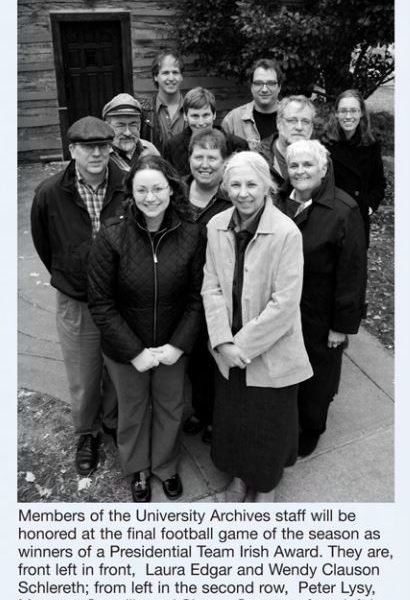
Thanks to thank Mary Jo Weaver for recommending us as an archival repository to the Carmelite Sisters of Indianapolis. Since last October we have received 44 linear feet of records from their monastery, including documentation of their inclusive language psalter, their religious typesetting business, their web site, and their annual interfaith prayer service for peace.The records also include files on the history of the monastery, including chronological files, records of individual sisters (current members, former members, women who have lived at the monastery), and records of friends of the monastery; clippings and chronicles; files on initiatives of the monastery, and on the participation of Indianapolis Carmelites in national organizations, including the Association of Contemplative Sisters and Carmelite Communities Associated; with historical data on Carmelites in America, on Carmelite formation, on third-order Carmelites, now called the Secular Order of Carmel, and on the Carmelite Order in general; books including breviaries, prayer books, and ceremonials; periodicals including the Contemplative Review and the Servitium Informativum Carmelitanum newsletter; photographs, audio-visual material, and historical artifacts such as the pre-Vatican II Carmelite habit, devotional objects, and equipment for making hosts for the eucharist.
In June we received material collected by Rev. Jeffrey M. Kemper in support of his doctoral dissertation,“Behind the Text: A Study of the Principles and Procedures of Translation, Adaptation, and Composition of Original Texts by the International Commission on English in the Liturgy.”The collection, amounting to about four linear feet, includes copies of ICEL correspondence, memoranda, agenda, meeting material and texts.This new material complements other collections in our archives from the Consultation on Common Texts and the English Language Liturgical Consultation.

